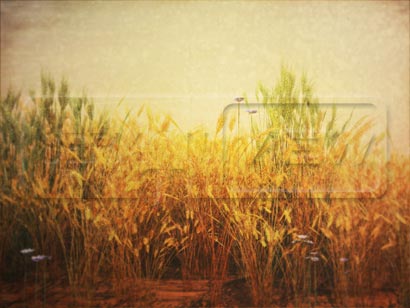16TH SUNDAY ORDINARY TIME – A

Recorded in the Australian Catholic Radio Online:
http://cradio.org.au/index.php/resources/homilies/16th-sunday-in-ordinary-time/
Everything that God created is good and beautiful! When we were born, we epitomized purity, innocence, tenderness and most especially love. Nothing can be more beautiful than a newly born baby. But when we grew up, we became vulnerable to the influence of the world around us: our family, our school, our church, the media, our peers and many others. When we were born, we were like the wheat in the parable this Sunday. Somewhere along the way, some of us were turned into weeds or maybe we find ourselves growing in the midst of weeds.
When Jesus explained to his disciples the parable of wheat and the weeds, it was turned into an allegory and there we understand that the sower of the good seed was God; the field was the world; the good seeds are the subjects of the kingdom; the weeds are the subjects of the Evil One; the enemy who sowed it was the devil; the harvest is the end of the world and the reapers are the angels.
Because of the justice system, our society protects us from possible attack of evil people who may harm us. Because of this, criminals who are threats to peace and order are placed in correctional institutions and prisons. Even so, we are not completely at peace because not all people who are potential threat to our society made it behind prison bars. In fact, some powerful drug lords or heads of syndicates are living more prosperous lives than most of the ordinary good citizens of the society.
We really do not understand much the wisdom of God why he lets this seemingly unjust system prosper wherein bad people are not punished and good people continue to live in fear. Why would God not weed out all these criminals and wipe them out so that there will only be good people and the world would be at peace. On the first place, why would he let Hitler or Polpot exist when he knew that they would only exterminate millions of innocent lives? Why would he let dictators live only to control the economy of a whole nation for their selfish gains? In this unjust society, many of us cry for justice and peace. And many of us say “Where is God here?” We may not have the answer to this existential question, but we continue to believe that God is in charge of the world he has created.
The parable reminds us not to judge simply because we categorize people and put labels on them. When we do this, of course, we count ourselves as belonging to the good ones. The task of separating the good from the bad is reserved to God and God alone. Because he is the one in charge, he knows the right time for every endeavor. His sense of justice is far different from ours that is why he lets the wheat and the weeds grow at the same time. That is why the Church is composed of saints and sinners who are striving to be good; if you are only looking for saints in the Church, you will be disappointed.
Maybe some of us have been weeds at some time in our lives but by the virtue of God’s grace, we were turned into wheat. If this is so, who among us should ever dare to judge those whom we believe are living like weeds? All of us are under the mercy of God and we rely on his benevolence; either we are wheat or weeds, we are all beggars of the rain that only come from heaven. We can only be grateful.
At the end, the justice of God will prevail. Let us pray that when our life on the fields is over, he may gather us together with other wheat; that he may put us into his barn, there ready to become food for the hungry world.
No comments:
Post a Comment